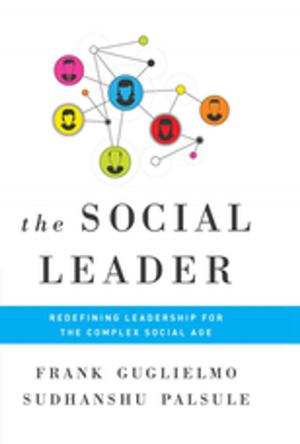| Author: | Eve Garrard, Geoffrey Scarre | ISBN: | 9781351916752 |
| Publisher: | Taylor and Francis | Publication: | May 15, 2017 |
| Imprint: | Routledge | Language: | English |
| Author: | Eve Garrard, Geoffrey Scarre |
| ISBN: | 9781351916752 |
| Publisher: | Taylor and Francis |
| Publication: | May 15, 2017 |
| Imprint: | Routledge |
| Language: | English |
How far can we ever hope to understand the Holocaust? What can we reasonably say about right and wrong, moral responsibility, praise and blame, in a world where ordinary reasons seem to be excluded? In the century of Nazism, ethical writing in English had much more to say about the meaning of the word `good` than about the material reality of evil. This book seeks to redress the balance at the start of a new century. Despite intense interest in the Holocaust, there has been relatively little exploration of it by philosophers in the analytic tradition. Although ethical writers often refer to Nazism as a touchstone example of evil, and use it as a case by which moral theorising can be tested, they rarely analyse what evil amounts to, or address the substantive moral questions raised by the Holocaust itself. This book draws together new work by leading moral philosophers to present a wide range of perspectives on the Holocaust. Contributors focus on particular themes of central importance, including: moral responsibility for genocide; the moral uniqueness of the Holocaust; responding to extreme evil; the role of ideology; the moral psychology of perpetrators and victims of genocide; forgiveness and the Holocaust; and the impact of the `Final Solution` on subsequent culture. Topics are treated with the precision and rigour characteristic of analytic philosophy. Scholars, teachers and students with an interest in moral theory, applied ethics, genocide and Holocaust studies will find this book of particular value, as will all those seeking greater insight into ethical issues surrounding Nazism, race-hatred and intolerance.
How far can we ever hope to understand the Holocaust? What can we reasonably say about right and wrong, moral responsibility, praise and blame, in a world where ordinary reasons seem to be excluded? In the century of Nazism, ethical writing in English had much more to say about the meaning of the word `good` than about the material reality of evil. This book seeks to redress the balance at the start of a new century. Despite intense interest in the Holocaust, there has been relatively little exploration of it by philosophers in the analytic tradition. Although ethical writers often refer to Nazism as a touchstone example of evil, and use it as a case by which moral theorising can be tested, they rarely analyse what evil amounts to, or address the substantive moral questions raised by the Holocaust itself. This book draws together new work by leading moral philosophers to present a wide range of perspectives on the Holocaust. Contributors focus on particular themes of central importance, including: moral responsibility for genocide; the moral uniqueness of the Holocaust; responding to extreme evil; the role of ideology; the moral psychology of perpetrators and victims of genocide; forgiveness and the Holocaust; and the impact of the `Final Solution` on subsequent culture. Topics are treated with the precision and rigour characteristic of analytic philosophy. Scholars, teachers and students with an interest in moral theory, applied ethics, genocide and Holocaust studies will find this book of particular value, as will all those seeking greater insight into ethical issues surrounding Nazism, race-hatred and intolerance.















